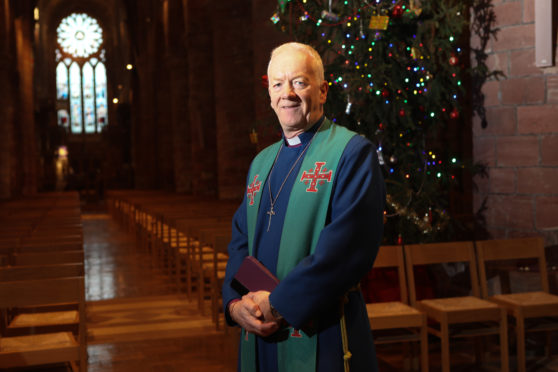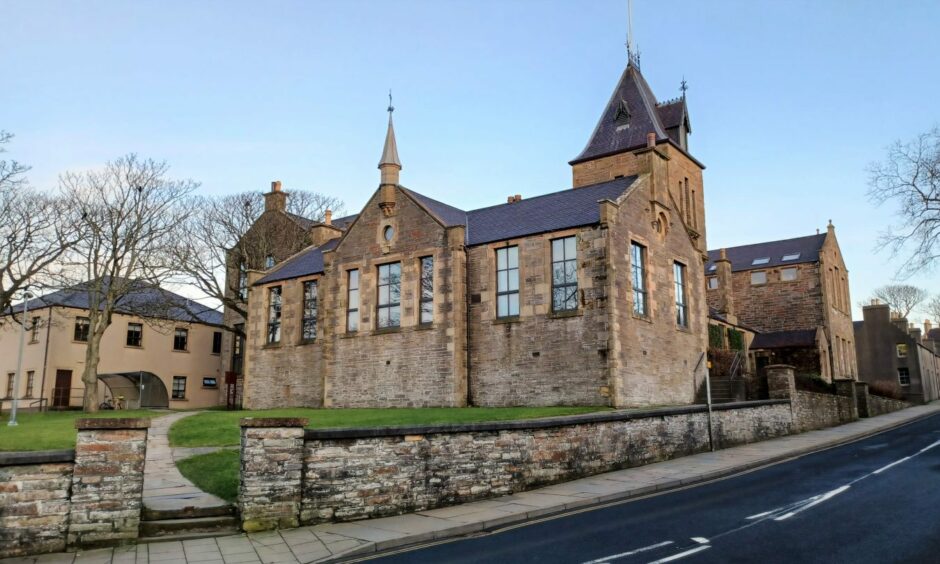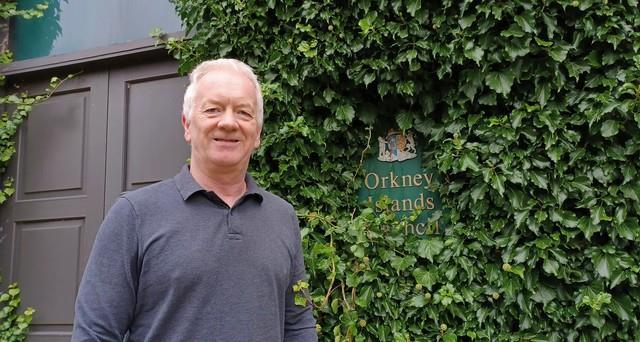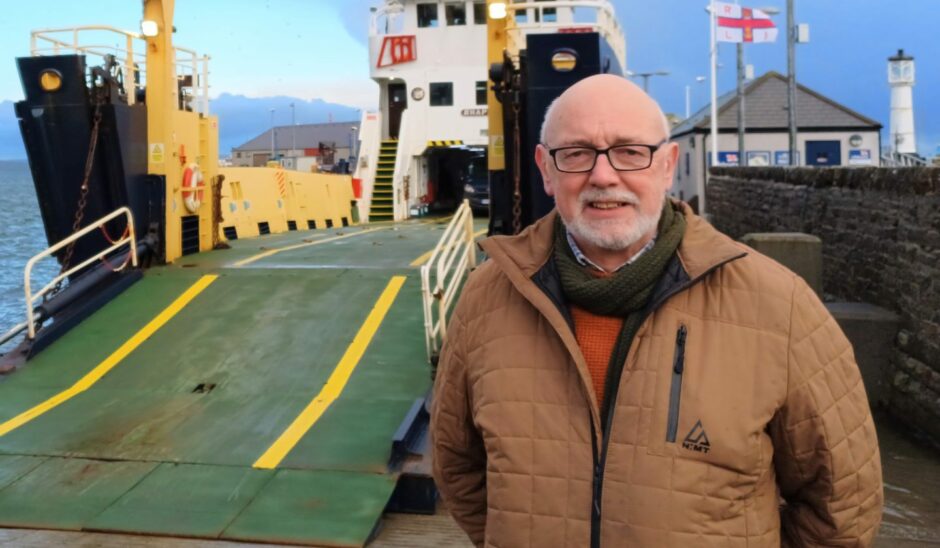One of the three religious representatives on Orkney Council’s education committee has responded to yesterday’s debate which resulted in them being stripped of their right to vote.
With a vote of 12 to 9, councillors said voting rights should be removed for the reps.
The other option before the councillors was to defer the decision to another day, after consulting with the reps and the religious bodies that nominated them.
Today, Rev Fraser Macnaughton shared his opinion on the matter.
He said the two green councillors who brought the issue to full council were “playing naive, if not disingenuous, politics.”
He also asked: “What on earth people are doing, wasting their time on a non-issue for Orkney?”
No more votes for religious reps
Orkney consists of 19 independent councillors and two Orkney Greens. Rev Macnaughton said he finds it hard to envisage a scenario where he would have had to use his vote to oppose other committee members.
His feeling about sitting on the council’s Education, Leisure, and Housing Committee have not changed as a result of yesterday’s decision though.
He feels his value to the committee is not based on him having a vote.
He said: “My input is what I bring to the party, not whether I can vote on things or not.”
The debate in Orkney council chamber took place during a meeting of full council.
Orkney Green councillor John Ross Scott brought forward the motion asking for the removal of the voting rights the reps held.
The councillor said this was only fair as student, teacher, and union reps all sit on education committees in Scotland but have no vote.
Several councillors stated their concern over the reps being able to vote, while not being elected to the committee by the public.
With this decision, the isles council has followed the likes of Perth & Kinross, Moray, and Scottish Border councils.
Orkney follows in footsteps of three other Scottish councils
Alongside Rev Macnaughton, Marie Lock and Rev Susan Kirkbride sit as the three religious representatives on Orkney council’s Education, Leisure, and Housing (EHL) Committee.
The three reps will still sit on the committee and be able to give their views.
Rev Macnaughton, who is the minister at St Magnus Cathedral, was nominated to the EHL committee by the Church of Scotland.
As with the other reps he was then accepted onto the committee by councillors.
He said he only found out about councillors’ decision after hearing coverage on local news this morning.
Prior to this, he’d only had an “off-the-cuff” conversation with councillor Scott, he says
He said he expected that he and other religious reps would be part of the conversation before it went further.
He said he’d been expecting the issue to come to the EHL committee itself first.
“I was aware that the Scottish Green Party were looking at all of this.
“I didn’t know it was coming up and was certainly not aware it was coming to the full council.
“If such a debate was to be had, I thought it might be more democratic and respectful.
Religious rep was unaware debate was to take place
“I thought we’d have some sort of input, probably on the EHL committee.
“Rather than the full council bypassing anything that we might want to contribute.”
However, Rev Macnaughton’s feeling was that the issue wasn’t really about removing voting rights.
He said yesterday’s debate became more about the wider issue of religious reps on education committees.
He said if a more “secular scenario” is the goal of the Greens, then the debate over having religious reps on education committees at all is one for Holyrood – where that decision can be made – and not individual council chambers.
Asked if he felt hard done by over yesterday’s decision, he said: “It’s not a question of that.
“I think both councillors Scott and Leask are playing naïve if not disingenuous politics.
“The issue about voting is neither here nor there.
“If you follow the logic of what they were saying, voting is a minor issue for the Greens.”
Rev Macnaughton said, given the make-up of Orkney council, the debate over the votes held by religious reps was very different from other council areas, where political parties play a much bigger role.
As such, he couldn’t imagine a scenario where he would be “manning the barricades and voting against the majority.”
Church of Scotland response to council’s decision
The Church of Scotland spokesman echoed Rev Macnaughton’s thoughts on the issue.
Responding to the decision by Orkney council, the spokesman said: “Every local authority has three places for a religious representative on the education committee.
“Church representatives seek to be good community partners and offer support and encouragement
“They are there to serve the wider community, not to impose their will.”
Rev Macnaughton continued: “The religious reps bring a different flavour to the committee and councillors have said they appreciate my comments.
“I’m not there to try and change policy, I’m just there to ask questions that perhaps others hadn’t thought about.
Is voting for religious reps a ‘non-issue’ in Orkney anyway?
“I can do that as someone in the community who meets all sorts of people in different situations. It’s not necessarily religious.”
“It would be interesting to know if anyone at Orkney council can point to any instance of a religious rep using their vote to either make a difference in terms of a close vote.
“I suspect it’s never happened.
“So, my question is what on earth are people doing wasting their time on a non-issue for Orkney?”
Councillor Scott was asked to reply to these comments.
He said: “I don’t want to get into a fight with Rev McNaughton.
“We have talked about removing religious representatives from the committee and removing their voting rights.
“We were not being naïve in just going for the voting rights.
“Only the Scottish Government has the legal right to remove the three religious representatives from an education committee.
“They have had that right since 1948, yet no political party has had the guts to do so.
‘A clear anomaly’
“The reason we went for voting rights was that it is a clear anomaly.
“No other non-elected representative has votes while – on paper – the religious reps have three. It was the only option open to us.
Mr Scott added: “We are not anti-religious and we do see the importance of spiritual care in public life.
“Religious representatives will still have the chance to have their say in an advisory role, as the law clearly intends.
“Any decisions that come to a vote will now correctly be taken by elected representatives who are accountable democratically.”




Conversation